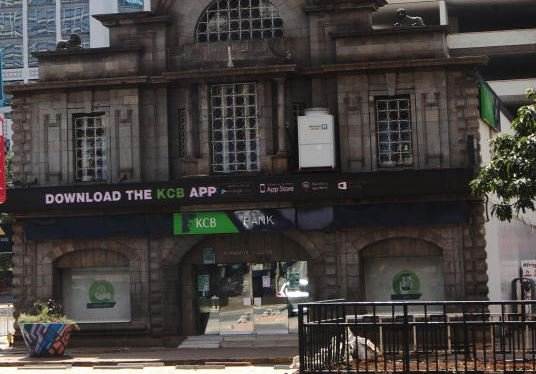Kenya’s largest lender by assets, KCB Bank, reported a 40 per cent drop in profit for the first six months of 2020, losing its profitability perch to Equity Bank that made Sh9 billion for the half year. [File, Standard] Banks are estimated to have registered a drop in profitability by 30 per cent in what is turning out to be one of the worst half years for the country’s lenders. An analysis of financial results for 28 banks, including all the big ones, shows that the industry’s net profit declined to Sh44 billion in the first half of 2020 from Sh62.9 billion in the same period last year, reflecting the negative effects of the Covid-19 pandemic. Among the banks, Absa was the worst hit, with its profit after tax declining by 89 per cent. KCB, the country’s largest bank by asset size, relinquished its pole position as the most profitable lender after its pretax profit declined by 40 per cent to Sh7.6 billion. Equity Bank reported Sh9 billion profit for the half-year to take the leading position. NCBA, an amalgamation of what was formerly CBA and NIC Bank, saw its net profit decline by 39.5 per cent, while Diamond Trust Bank registered a 38.1 per cent with Stanbic and Equity registering a decline by 37.5 per cent and 14 per cent, respectively. Co-operative Bank might have been the best performer among the big boys, with its net profit reducing by only four per cent. As a result, most of the banks have been forced to dip into their revenues and put aside money as insurance against possible defaults by borrowers distressed by the pandemic. This expense, known as loan loss provision, increased by more than three times to Sh42.8 billion from Sh13.4 billion in the same period in 2019. Virtually all this insurance was from the 10 largest banks, whose loan loss provision added up to Sh39 billion. A tough operating environment characterised by business closures and massive layoffs has seen borrowers either fail to pay loans or request for a change of terms. Either way, banks have been forced to increase their buffer against possible defaults. By end of June, banks had restructured loans worth Sh844.4 billion, nearly a third of the industry’s loan book, according to the Central Bank of Kenya (CBK). Of the total loans restructured, individuals and households rescheduled Sh240 billion, CBK Governor Patrick Njoroge […]
Worst six months for banks as profit drops by 30 per cent
